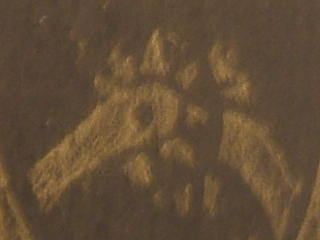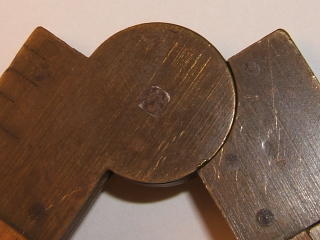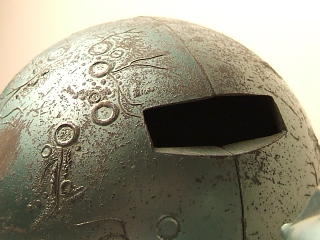- All the time it takes to prepare to paint and clean up afterwards. What a production! If I want to make a table, let's say, I just go into my shop, make some measurements and start whacking boards. I don't have to sand and vacuum and wash with TSP and rinse the boards first--I just cut 'em. And then there is the cleaning. I never use oil-based paint and I still find cleanup to be tedious drudgery.
- Then there is the drying time when everything that was in the cabinet or on the wall has to remain somewhere else while the paint is drying (all the while stinking up the house).
- Drips. And I'm not talking about those people who drop by, observe the junk all over the dining room table, sniff the air, and ask, "Are you painting or something?" I mean the kind that ooze down the wall while you aren't looking or land on the grout of the tiled floor and then smear when you step on them. Arrrrgh!
Well, that's not what we are here to talk about, is it? It is time for an i-word. It is tempting to just use inchoate, but that appeared tangentially under the Weekend word C listing. No, you deserve a new word. Here's one that I use when teaching New Testament studies: INTERCALATION [in-ter-kuh-LAY-shun]. Basically that's a big word for a sandwich filling. It technically means anything that is inserted in between two others that are in a series. So in the Gospel of Mark, for example, the author tells the story of Jesus cursing the fig tree but he interrupts himself by inserting the story of Jesus clearing the temple. Then, as he tells it, the next day Jesus and the disciples pass the same way, and, whatta ya know, the fig tree is withered! That temple-clearing story, that's an intercalation. Look at Matthew's account--he tells it straight through, cursing and withering on the same day.
Well, I hope you enjoy this word because it's all you're getting tonight. I'm pooped, the heater is running, and I must take a shower. Hey, no more daylight savings time tomorrow--yahoo!


















